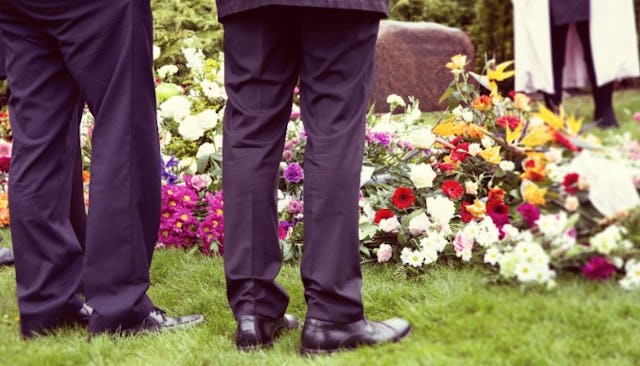I Struggled With Teenage Depression After I Lost My Mother

My kids always ask me what I’m scared of the most, and I’m never really sure how to answer them because I don’t want to scare them with my real fear. I usually say I’m scared of something bad happening to them. I can’t tell them the truth.
What I’m really scared of is dying and leaving them to navigate growing up without me. It’s not that I don’t think my husband would do a good job. I know he would, but I saw how hard it was for my dad to be a widowed, grieving single parent, and I know what it’s like to live with two parents and then just one.
My mother died when I was 16.
I’m afraid of leaving my kids to finish growing up without me because I know what losing my mother did to me. I fell face first into depression as a teenager, and my dad didn’t have the help I needed because he was going through his own grief of losing his wife of 21 years. I worry about my kids falling into a teenage depression because I lived it, endured it; I lived on while it strangled me daily.
The shock of my mother’s death really never wore off. There was the daily morning stab the moment I opened my eyes, forcing me to remember again and again she was now gone, that she was dead. I lost all interest in my teen activities she was a part of with me. I had been in dance since kindergarten, but I quit not long after she died because I saw no point in it anymore with her not there with me to help me dress in dance costumes and do my hair. I stopped studying, and I no longer tried in school. I managed to graduate with honors, though it was the lowest level of honors, but I didn’t care. It was too hard to care about school work with a dead mother.
I started engaging in many risky behaviors including going to parties, and my choices became what I used to consider to be the bad choices, but again, I didn’t care. I couldn’t function as I once had, and I put myself in many unsafe situations, but again, I didn’t care. I am amazed I’m still alive. I believe I am alive because of luck and by the grace of God.
She died 25 years ago, and I’m healthy now, but I can still easily dive into those deep, dark swirling pools that are my memories of teenage depression. I spent many hours agonizing and writing down my feelings, silently screaming inside alone and tortured, as no one knew what I was going through. I had friends to talk to, but no one really knew how low I was at that point in my life. I needed help, and not only did I not understand that I needed help, no one noticed I needed it either, so no one helped me in the way I needed it. I didn’t care about much, so I did whatever I felt at the moment and just tried to keep going. I didn’t even realize I was in a depression until I was about 19 and came across the signs of teenage depression; I realized that had been me for three years.
I told one trusted family member when I started to heal how I believed I had depression, and she brushed me off and told me I couldn’t have been that bad. Her response confused me. I knew depression ran in my family. I thought I had figured out what was wrong with me, and she told me I was wrong. I wasn’t sure how to feel, but at the time, I figured she must be right. I did not seek help, and I let go of those thoughts and kept trudging on with my life.
I was lucky because I did heal with time, but if I had gotten help, I know the healing would have happened faster. I now know as an adult and a mother, I was a depressed teenager and the one person I reached out to did not validate me.
I can’t tell my kids now when they ask me what my worst fear is because I know it would scare them to think I could die. Maybe someday I will be able to tell them. I fear the possibility of teenage depression if I’m not here to help them. I fear they will struggle and not find help. I pray nightly that my young boys never have to go through what I did without a mother.
This article was originally published on Her View From Home.
This article was originally published on